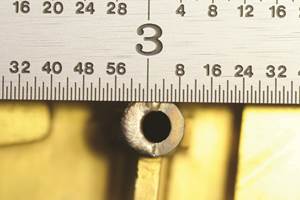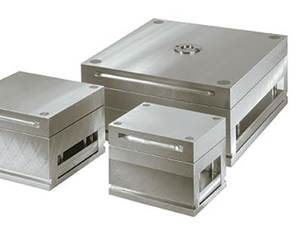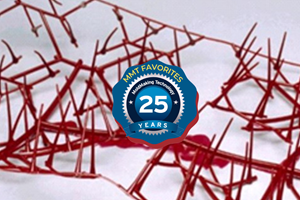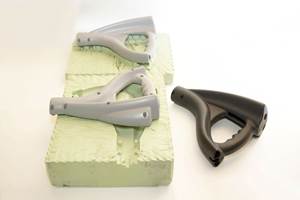Out-Takes: Apprentice Backstories
There’s always more of a story to tell when we’re composing features about the places and people of moldmaking. Here are a few that correspond with one of our January feature articles.
There’s always more of a story to tell when we’re composing features about the places and people of moldmaking, but space constraints can cause us to trim information even if we feel it’s interesting. In our newly released January issue, I wrote a story about three schools with notable educational programs in the United States that are introducing students to career opportunities in manufacturing and providing skills-based training to give them a head start. With this January article a sidebar was composed featuring a student from each school so that readers can see how each curriculum is achieving positive results. Here are the full back stories for each student.
Andrew Carlsson, Apprentice
Rockford Toolcraft Inc.
Andrew is a 2016 graduate of Jefferson High School in Rockford, Illinois, and is currently working at Rockford Toolcraft and is enrolled in the Rock River Valley Tooling and Machining Association’s apprenticeship program for Tool and Die and taking classes at Rock Valley College. “I have been involved in manufacturing my whole life. My father was a tool and die maker and my mother worked as a secretary for shops across town. My father groomed me, in a way, for this career path, and I love making things so complex that the average person cannot fathom it,” he says. Charles Kluzak, who is the precision machining and manufacturing instructor at Jefferson’s Engineering, Manufacturing, Industrial and Trades Technology (EMITT) Academy, taught and guided Andrew for three years.
Andrew’s class at Jefferson was the first to be introduced the academy program, and he says he likes the academy program because it helps students choose a potential career path and learn skills in relation to it. “I met Mr. Kluzak in my sophomore year, in his Introduction to Industrial Technology and Engineering class, and I loved him as a teacher right away and loved the work we did in the class even more,” he says. “Over time, as our projects grew harder and more complex, I wanted more and more challenges and to learn as much as I could. Mr. Kluzak saw this and helped me get on a career path as a tool and die maker, recommending me for a job at Rockford Toolcraft and putting me in contact with the owner to set up an interview. From there it was on me. I got the job and started working in July, right after my 18th birthday. My apprentice duties are not all glamorous but I must pay my dues. As time goes on I’m beginning to get my first jobs and work on real products that go to the customer. I love that so much. The dies we build are like large Lego sets and I enjoy the problem-solving aspect of my job.”
Kluzak says Andrew has extensive knowledge in the use of lathes, mills and surface grinders, and has passed the MSSC safety certification test as well as the MSSC manufacturing processes and production certification test. “In four years I will complete my apprenticeship and will earn the title of journeyman tool and die maker, and from there I hope to continue learning about my trade,” Andrew says. “In the beginning you learn so much, but even after years of being in this trade you can still find something that puzzles you and you can learn from it. That’s why I love my job.”
Patrick Schulz, Machine Tool Technology
Dunwoody College of Technology
Expected Graduation Date: May 2017
Patrick is a sophomore at Dunwoody and says he would like to work as a machine operator/programmer after he graduates next May. “Right out of high school I was working as a CNC operator and had always wanted to learn more about the programming end of the job,” he says. “I chose manufacturing as a career path because of the amount of jobs available. Moldmaking especially appeals to me because you’re not likely to be building molds as a production job. You might make one mold then it’s off to the next job.”
Patrick says Dunwoody has a curriculum that focuses on learning how to use the machines that are most likely to be used out in the industry, making his education there even more valuable. Machine Tool Instructor Brian Nelsen is someone he considers a mentor as well as an “awesome instructor because he provides a good balance of classroom time to the one-on-one time with all his students. He has encouraged me to never stop learning and strive to get the job done in a timely manner. He helps me see the places that I have an opportunity to grow by walking me through the process and keeping me focused on the end goal.”
Patrick currently works 20 hours per week as Dunwoody’s Machine Tool student worker as he finishes his A.A.S. in Machine Tool Technology. Patrick performs preventative and corrective maintenance on the school’s Haas CNC machines and he runs production parts both for internal use and in collaboration with industry. Most recently, Patrick worked with Brian Nelsen to design and build training parts for Carl Zeiss Industrial Metrology’s training division.
Paige Fischer, Machine Tool Technology
Dunwoody College of Technology
Expected Graduation Date: May 2017
“With this degree, I am hoping to get a full-time position as a CNC machinist in a manufacturing company,” Paige says. “I chose CNC versus manual machines because CNC machines are on the rise. There is still a need for manual machinists but the increasing need for CNC machinists ensures that you will always be needed in the machining field.”
When asked why she chose machining as her field of study, Paige says she sees it as a stepping stone to her long-term goal of becoming a manufacturing engineer. “I have always wanted to be an engineer since I was a little kid,” she says. “My grandpa and my dad both went into the workforce as machinists before they became engineers. My grandpa worked his way up into the manufacturing engineer position, whereas my dad went to school and became a degreed manufacturing engineer. I look up to my dad and my grandpa as great role models and it means a lot to follow in their footsteps.”
Paige says she especially enjoys the hands-on aspect of Dunwoody’s machining program and its focus on shop time and running the machines. “In the machining field, I think our teacher Brian Nelson is a great inspiration to us all. He has seen a lot in the machining industry, as an employed machinist and as a business owner, and he is willing to share what he’s learned. Brian has taught us the basics of CNC milling machines. He is always ready to help you one-on-one and provide guidance where needed.”
Being a young woman in a traditionally male-dominated profession, Paige says she looks up to Janet Nurnberg, who is program manager and principal instructor of industrial engineering technology, as a mentor who has paved a path in Dunwoody and in the industry as a female engineer. “Janet has spent a decent amount of time working in a male-dominated industry. She used to work at a company as an industrial engineer and now she works at Dunwoody, which is still male dominated with instructors and students,” she says. “Janet told me that sometimes it can be more difficult for a woman when trying to present ideas. She also said it can help to find a male colleague in the company where I work who is willing to back up my ideas if necessary.”
Anne Gohn, Engineering Research Associate
Penn State Erie, The Behrend College
Anne Gohn is a December 2013 graduate of the Plastics Engineering Technology program at Penn State Behrend. While an undergraduate, she says she’s been particularly interested in the materials aspect of the plastics industry and, after graduation, accepted a position as a graduate research assistant with Penn State to continue her education and research work. “I took classes part time to earn a Master’s in Manufacturing Management, which is a professional masters program targeting topics such as lean improvements in manufacturing, quality, and product development. While I was taking classes, I was also sponsored by an industrial partner to work on a polymer composites project. I am currently employed at Penn State Behrend as a Research Associate for the School of Engineering, where I work on industry funded projects here at the university. I am also enrolled in my PhD at Martin Luther University in Germany, where I am working with one of our collaborators in the space of polymer crystallinity,” she says.
Anne says that while she isn’t’ working directly in moldmaking, she does sometimes get involved with part and mold design for specific applications. “For instance, I was working on a project where the company wanted to transform a historically steel part into a plastic component. However, the design principles for a plastic part are very different than for metals. In my occupation, I am often put in the position where I need to explain the mold-filling behavior of these polymer systems to industry partners who are unaware of the implications of manufacturing plastics, such as part designs with potential for voids, sinks, and warpage, or areas of a part that could be prone to failure due to stress concentrations, or manufacturing conditions that would provide the best crystallinity or composite mixing. All sectors of the industry work together to make a successful part,” she says.
Dr. Alicyn Rhoades, assistant professor of engineering at PSU, is someone Anne considers a mentor to her. “She was also a student of Behrend’s plastics program and has continued her education to earn a PhD in polymer science,” she says. “After spending some time in industry, she returned to academia to teach and focus on research. Through my relationship with her, I have been able to take part in many industry-funded projects that allow me to look into different problems or research questions that I otherwise would not have been exposed to. She can give me a lot of technical support on campus, where she is now my on-site advisor for my PhD program. But more importantly, she has been very supportive in helping me develop myself professionally and personally. As an engineer right out of college, I recognize that it is extremely important to develop the right image that you will be presenting to your colleagues and I feel that it was crucial to have a female mentor that will be able to help me develop the proper tact and mannerisms that will promote success in my career.”
The class that most impacted Anne’s career goals was the senior design course. “This is a two- or three-semester-long course (depending on your anticipated graduation date) that allows students to work on industry-funded projects. Mine was a materials research project considering recycling plastic materials in the medical industry. This course was extremely well rounded and taught students many different skills including new technical material testing techniques. I also gained the experience of working with an industrial sponsor, or, in project terms, my customer, who I needed to satisfy with our technical advances regarding their problem. In 5 years, I hope to be finished with my thesis and have a permanent position with Penn State,” she says. “I love the atmosphere here, where every day there is a new technical problem to solve that encompasses many different aspects of plastics manufacturing: tooling, part design, materials, processing. Academia also allows the faculty and staff to partake in many different industries spanning medical, automotive, aerospace, and even consumer goods. I also really like working with the students, knowing I can help by being an advocate for their successes, technically, professionally or even personally.”
I’d like to hear more apprentice back stories. Send me yours by commenting on this blog or via email. Cheers!
Related Content
Laser Welding Versus Micro Welding
The latest battle in finely detailed restoration/repair of mold materials.
Read MoreConsiderations for Mold Base Material Selection
Choosing the right material can greatly affect the profitability and cost of your application.
Read MoreRevisiting Some Hot Runner Fundamentals
What exactly does a hot runner do? If you’ve been in the injection molding industry for any length of time, you might think the answer is obvious, but it is not.
Read MorePlastic Prototypes Using Silicone Rubber Molds
How-to, step-by-step instructions that take you from making the master pattern to making the mold and casting the plastic parts.
Read MoreRead Next
Are You a Moldmaker Considering 3D Printing? Consider the 3D Printing Workshop at NPE2024
Presentations will cover 3D printing for mold tooling, material innovation, product development, bridge production and full-scale, high-volume additive manufacturing.
Read MoreHow to Use Strategic Planning Tools, Data to Manage the Human Side of Business
Q&A with Marion Wells, MMT EAB member and founder of Human Asset Management.
Read MoreReasons to Use Fiber Lasers for Mold Cleaning
Fiber lasers offer a simplicity, speed, control and portability, minimizing mold cleaning risks.
Read More

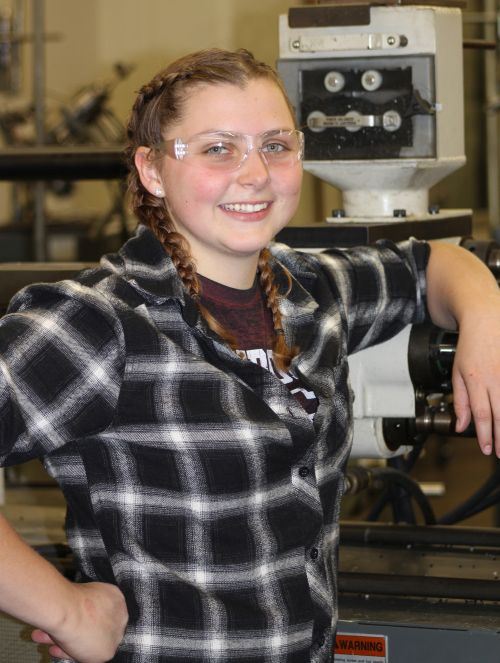
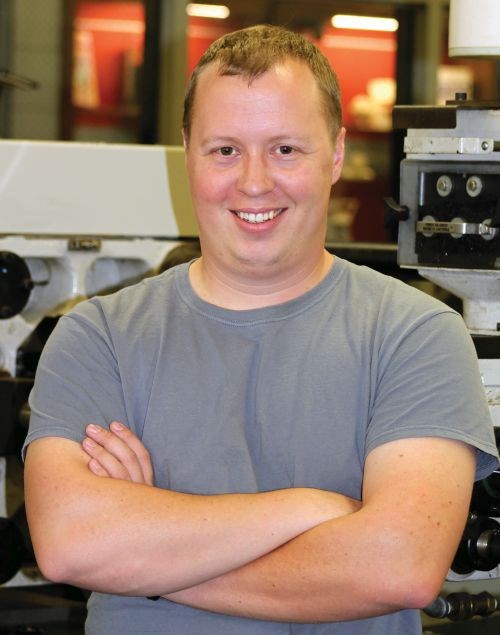
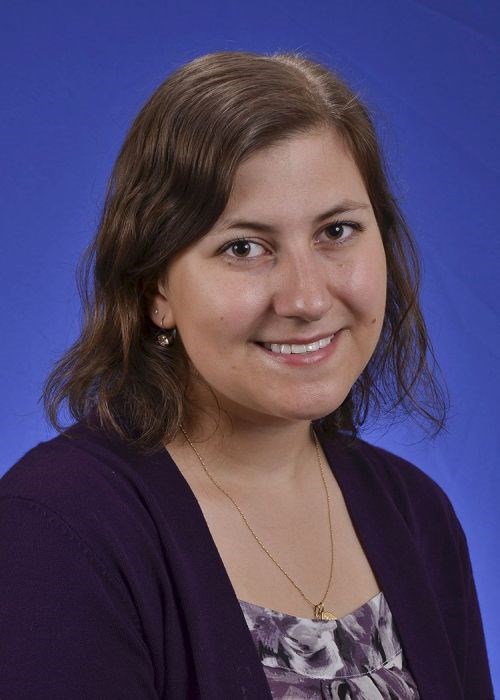
















.jpg;maxWidth=300;quality=90)




_300x250 1.png;maxWidth=300;quality=90)
